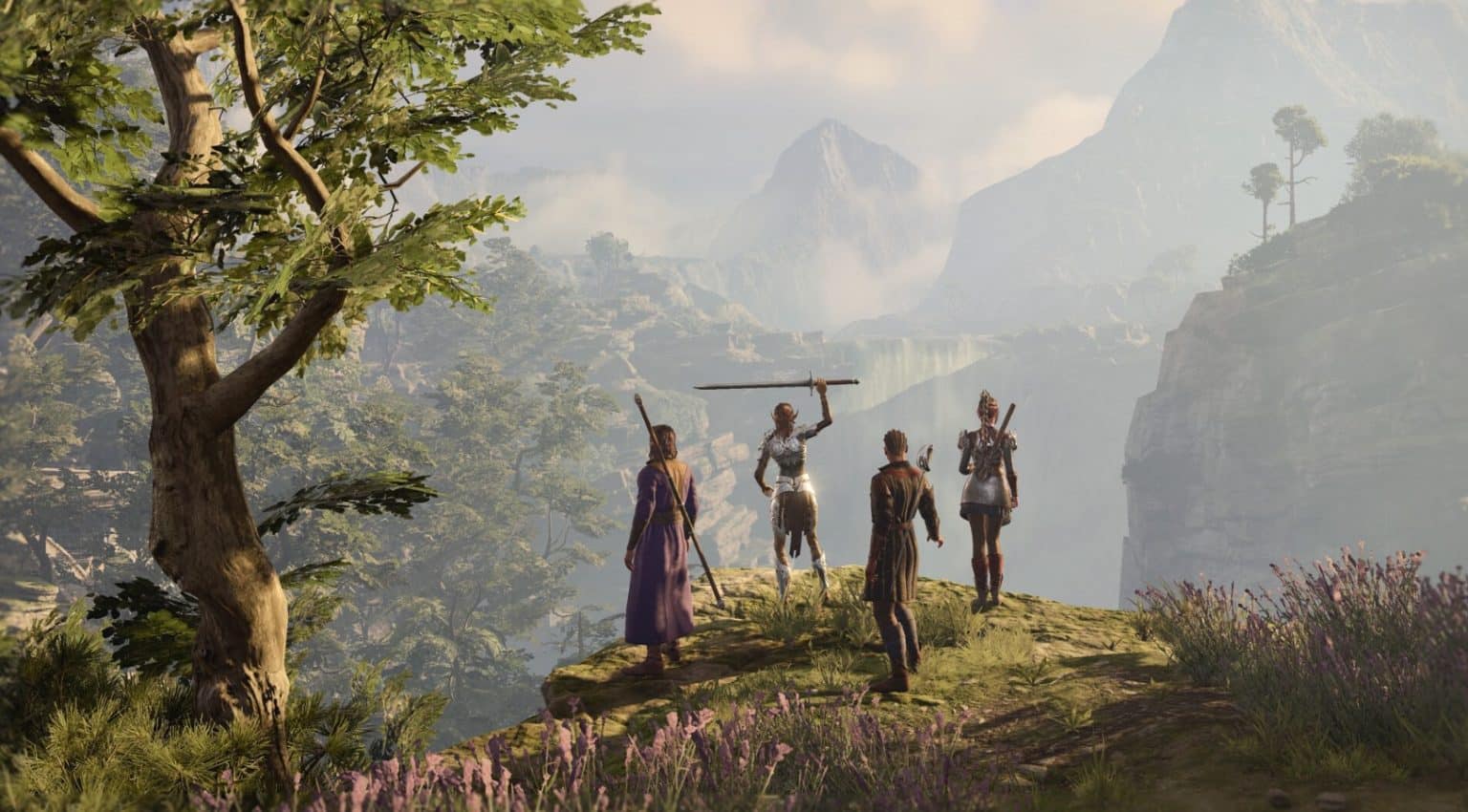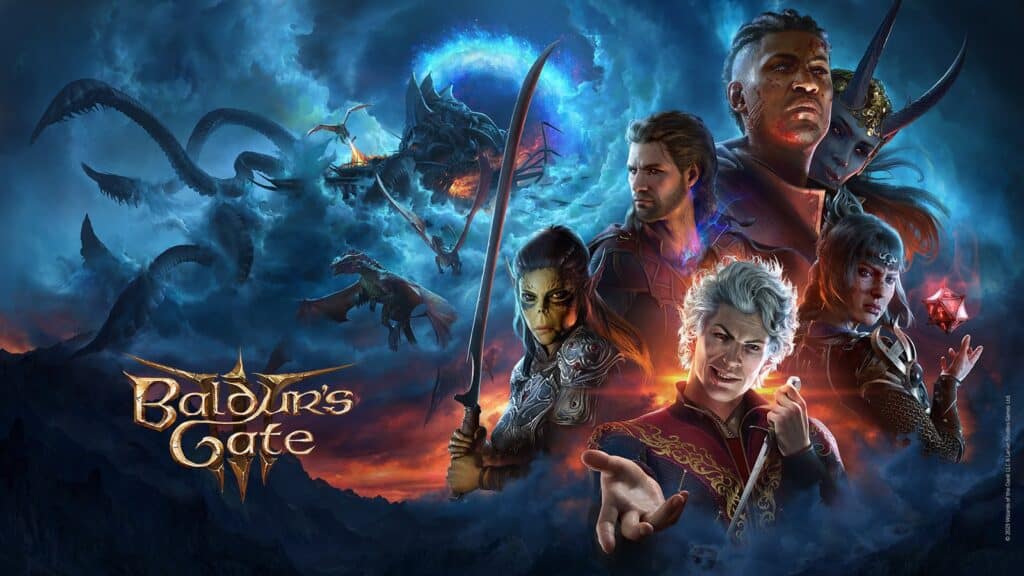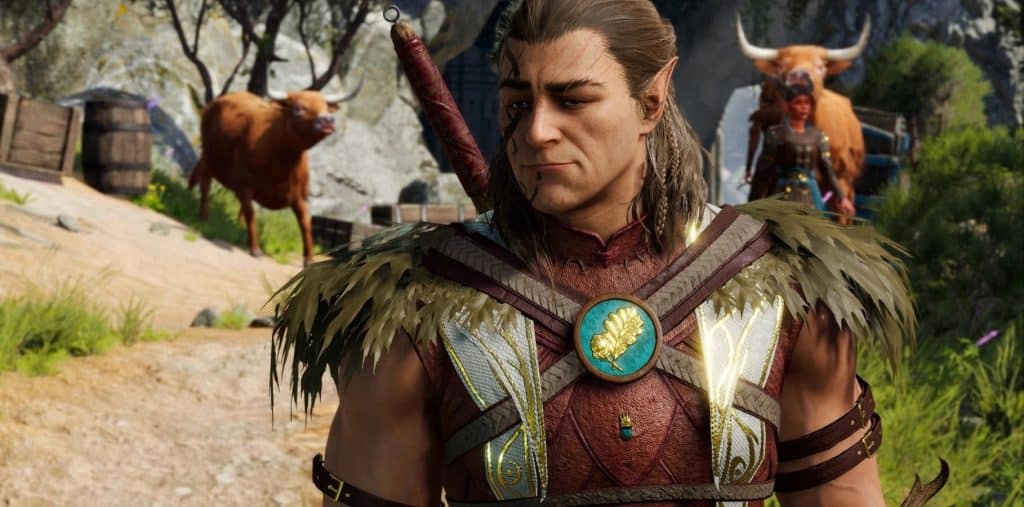Baldur’s Gate 3 has been on Early Access for a very long while now, and people are curious about its coop multiplayer features. With Baldur’s Gate 3 taking a turn-based stance, there are a lot of new mechanics that are being introduced to the franchise that will change how multiplayer functions in this entry. To help clear up confusion, we made this guide that shows you how to play with friends in Baldur’s Gate 3.
How to Play Coop in Baldur’s Gate 3?
You can play coop in Baldur’s Gate 3 by either starting a new game in multiplayer or by inviting friends to your single-player campaign. This will allow you to play through the campaign together by taking control of the party members. You can play with up to 2 to 4 players in a party.
Starting a new multiplayer campaign can be done by selecting Multiplayer in the Main Menu. From here choose to Create which will bring you to a lobby which provides options to who you can invite to your session. Change it to Invite Only or Friends Only. From there, click on the empty player boxes to invite your friends. Once they accept, they will enter your lobby and from there you can start a new multiplayer game together.
You can send the Server ID as an alternative to get your friends to connect to you without the need to invite them. Just get your friends to use the Direct Connect option which can be done from the Main Menu.
When you start the game, your friends will be loaded into the Character Creation screen and will be able to customize and create their own character to play as. You will start the game together and progress with each other.
How to Invite Players in Single Player?
Inviting a friend to play with you in Baldur’s Gate 3 coop in your single player campaign is a little different. For one, your friend needs a party member of one of the characters you’ve recruited to take control of. They won’t be able to join the game otherwise. And since they’re loading into your campaign that’s already started, they can’t create their own character.
Once you do have someone for them to take control, pause the game and go into Session. Open your Settings and go into Invites. From here, you’ll be able to invite friends to join your session as one of your companions.
How Coop Works in Baldur’s Gate 3
If you’re familiar with Divinity: Original Sin II, the multiplayer in Baldur’s Gate 3 works similar to that one. Another player can join your session by taking control of one of your party members. Unless you’re starting a new game with them, they can’t create their own characters and drop in and out whenever they please. So they can’t bring a character from their session to your world.
So what happens is a player quits your current session? Once a player quits your session, the character they’re playing as automatically becomes controlled by AI. Or one of your friends can take control of that character. You can also invite your friend back to play as that character again.
You can continue a multiplayer session by loading a save like any single player campaign. The main setback here is that the host has to be the one to save and load progress. If you have friends who want to play using their character in your game, they’d have to wait for you to host the game by loading the saved file. After that, you can invite them like you’re doing so in single player.
So how exactly would talking to NPCs work in Baldur’s Gate 3? Since it is a turn-based RPG, you can talk to NPCs and accept quests. How it works is that players from the party can more or less do their own thing and wander off on their own, talking to NPCs at their own leisure and taking up quests. They can even get up to fights on their own. If a party member is talking to an NPC, others can eavesdrop on the conversation and even suggest which dialogue options they want the other to say.
In single player, once a player joins your party they’ll take control of one your party members. While they’re in control of said party member, you can’t talk to them as if they’re NPCs anymore. This could mean missing out on some interesting dialogue to get to know these characters’ backgrounds.





![Baldur’s Gate 3: Best Gale Build Guide [Updated] Baldur's Gate 3 Best Gale Build Guide Updated](https://sirusgaming.com/wp-content/uploads/2023/08/Baldurs-Gate-3-Best-Gale-Build-Guide-Updated-1024x576.jpg)
